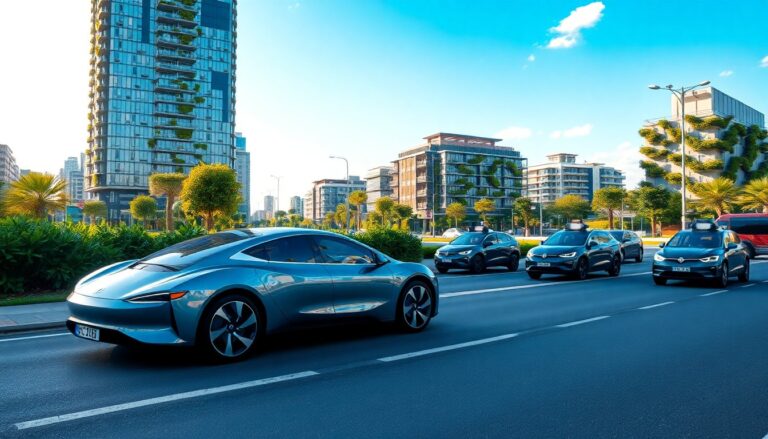Argomenti trattati
The automotive industry is experiencing a significant transformation driven by technological advancements, changing consumer preferences, and a growing emphasis on sustainability. Understanding these trends is essential as they shape the vehicles we drive today and in the future.
This article explores key trends such as the rise of electric vehicles (EVs), the integration of autonomous technology, and the increasing focus on sustainability within the automotive sector. Each trend impacts manufacturers and influences consumer decision-making processes.
The rise of electric vehicles
One of the most notable shifts in the automotive industry is the rapid adoption of electric vehicles. Major manufacturers like Tesla, Ford, and General Motors are committing to electrification, dramatically changing the landscape. EVs have become more accessible due to advancements in battery technology and an expanding network of charging stations.
Benchmarks show that the global market for EVs is projected to grow at a compound annual growth rate (CAGR) of over 20% through 2027. Factors contributing to this growth include government incentives, increased consumer awareness of environmental impacts, and a broader variety of models available to consumers.
Consumer perceptions and barriers
Despite these positive trends, challenges hinder widespread adoption. Many consumers remain concerned about range anxiety, the fear that a vehicle will run out of battery before reaching a charging station. Additionally, the initial purchase price of EVs can be higher than that of traditional combustion engine vehicles, although the total cost of ownership often favors EVs over time.
Education and outreach campaigns are essential to addressing these concerns. As consumers become more informed about the benefits and capabilities of EVs, the shift toward electric mobility is expected to accelerate.
Advancements in autonomous technology
Another transformative trend is the development of autonomous technology. Self-driving cars are becoming a reality, with companies like Waymo and Uber investing heavily in research and testing to make autonomous driving safe and viable. The implications of this technology extend beyond convenience; it could reduce traffic accidents caused by human error and improve traffic flow.
From a technical standpoint, the integration of artificial intelligence in autonomous vehicles enhances decision-making capabilities. AI systems can analyze vast amounts of data in real-time, leading to safer driving experiences. However, regulatory hurdles and public skepticism remain significant challenges that need addressing.
Ethical considerations
The rise of autonomous vehicles also raises ethical considerations. Questions regarding liability in the event of an accident arise—who is responsible when a self-driving car is involved in a collision? These questions must be clarified before fully autonomous vehicles become commonplace on our roads.
Sustainability in automotive design
As consumer awareness of environmental issues rises, sustainability is becoming a critical focus in automotive design. Manufacturers are increasingly seeking ways to reduce their carbon footprint through sustainable materials and eco-friendly manufacturing processes. For instance, some companies are using recycled materials for vehicle interiors and renewable energy sources in their production lines.
This article explores key trends such as the rise of electric vehicles (EVs), the integration of autonomous technology, and the increasing focus on sustainability within the automotive sector. Each trend impacts manufacturers and influences consumer decision-making processes.0
The role of consumers
This article explores key trends such as the rise of electric vehicles (EVs), the integration of autonomous technology, and the increasing focus on sustainability within the automotive sector. Each trend impacts manufacturers and influences consumer decision-making processes.1
This article explores key trends such as the rise of electric vehicles (EVs), the integration of autonomous technology, and the increasing focus on sustainability within the automotive sector. Each trend impacts manufacturers and influences consumer decision-making processes.2

